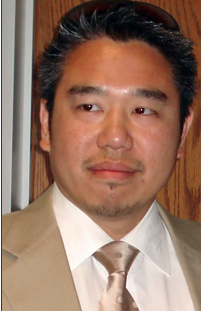At California Forward, we read this article about the growing influence of the Asian American vote in California in the San Jose Mercury News this week and it made us curious. Since we are a non-partisan organization that promotes an informed electorate, we thought this was worth digging into.
So we asked around who we could talk to about this and we were pointed to Bill Wong of Sacramento, who’s been a political consultant specializing in the Asian American vote for the past two decades.
We caught up with Wong in Washington D.C. this week.
“Twenty years ago, no one was talking about this much, but the Asian American influence on California politics has been increasing dramatically,” he said.
He said, unbelievably, from 1980-1992 no Asian Americans served in the California Legislature. That has  changed. There are now 3 State Senators and 8 Assembly members. In addition, California has three Asian American members of Congress, four statewide constitutional elected offices and four State Supreme Court Justices.
changed. There are now 3 State Senators and 8 Assembly members. In addition, California has three Asian American members of Congress, four statewide constitutional elected offices and four State Supreme Court Justices.
“It’s been a silent sea change,” said Wong, “but it’s happening and we expect it to continue.”
The voting trends back this claim. In 2010, the percentage of Asian Americans who voted in California eclipsed both the Latino and African American turnout. Wong says this is a first in his memory.
When you think about the growing influence of Asian Americans politically, possibly the most stunning statistic is that a whopping 40 percent of the entire national population resides right here in California.
And unlike Millennials, they are actually registering to vote. Approximately 1.3 million Asian Americans are registered to vote in California. This is almost three times the number of African American voters in the Golden State.
And according to Wong, how they vote is much less predictable than Latinos and African Americans, who traditionally have leaned Democrat.
“Asian Americans simply aren’t hard wired for a political identity the way that Latinos and African Americans are,” said Wong.
The registration numbers certainly back him up. Wong points out that Asian Americans are roughly equally divided among Democrat, Republican and No Party Preference, the latter being the critical swing vote we hear so much about.
Another point important for future California elections is that the Asian American population is growing faster than any other ethnic group, according to the 2010 Census.
Wong made another observation that caught our attention at California Forward, where engaging Californians to be informed and active in democracy is a part of our mission.
“Newly naturalized Asian Americans are more prone to vote,” said Wong. “The longer you are here, the less likely you are to vote.”
Politicians take note: their influence as a bloc is only growing, they intend to vote, and their vote for you is not guaranteed. You’ll have to earn it from the Asian American community.
We suspect the attention being paid to them in media and political spheres is about to heat up.

